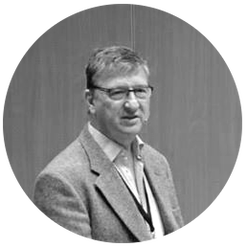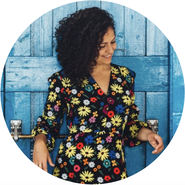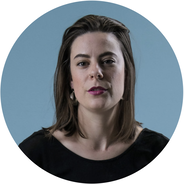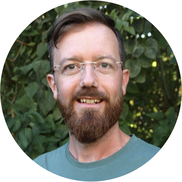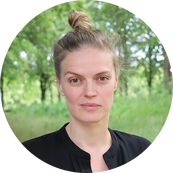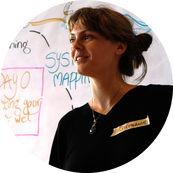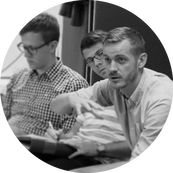Toke Møller
|
Toke has been pioneering the fields of sustainable entrepreneurship, the art of hosting conversations and work that matters, participatory leadership, educational renewal, and social responsibility since the early 1970s. Toke one of the the co-founder of The Art of Hosting, The Flow Game, and The Practicing for Peace dojo – all in service of a kinder, more humane leadership and citizenship for the future of people, nature and planet.
He has served as the chair of Danish Entrepreneurs Association and worked as a long-time international professional conference organiser and process host. He is co-founder, with Monica Nissén, of InterChange- a for-more-than-profit training and process consulting company based in Denmark. Toke and Monica have worked with the educational systems, international NGOs, governmental institutions, private companies, health care institutions, villages and first nations and international networks in all the continents. For years he has supported younger as well as more seasoned leaders from their personal leadership to hosting organisational transformations. Between 1997 - 2022 Toke has been part of initiating and supporting the Art of hosting & Participatory Leadership practices into 32 countries around the globe - as well in the European Commission / ministries and institutions, several universities in Denmark, Sweden, Canada, Colombia, Scotland, USA, Switzerland, Tasmania and Australia. Toke strives to inspire himself and others to practice personal peace as a basis to practise peaceful coexistence and wellbeing for All - regardless of circumstance. www.interchange.dk www.artofhosting.org |
Maíra Rahme
|
Hello! I am Maíra, I am a Brazilian strategist and service designer with over 15 years of experience in the creative industry. I hold a Bachelor's in Design from ESPM in Brazil, and an MSc in Sustainability from BTH in Sweden, where my research focused on Complexity and Behavioural Sciences.
I began my career at Tátil Design, in Brazil, as part of the award-winning design team behind the branding of the 2016 Rio Olympics and Paralympics. In the last 15 years I have led and participated in hundreds of projects, including the successful rebranding of Brazil's most popular perfume, and the positioning of the largest organic tea group in Darjeeling, India. I am currently energising the role of Service Design Lead at Big Motive, a Design Agency focused on designing for a beter society where I design and deliver Human-Centered Design and Service Design solutions with a focus on Public Services. In 2021, our work was instrumental in implementing the Northern Ireland "Spend Local" Voucher Scheme, which issued over 1.3 million prepaid cards to eligible residents to spend in local businesses, injecting £136.6 million into the local economy. Q. How has the Art of Participatory Leadership practice informed your past and present work? Participatory practises go hand in hand with design thinking and human-centered design. By combining the Art of Participatory Leadership with design methods, I can more effectively address complexity and align multiple stakeholders in our Service Design projects. My work normally involves bringing together a diverse group of people, including users, service providers and specialists to have conversations and collaborate on creating solutions that meet the needs of all parties involved. For the success of that work, it is critical for me as a facilitator, to listen actively and ask good questions, both of which are core Art of Participatory Leadership skill we will practice at the training. These practices help me create an environment that encourages active participation, open communication and deeper alignment. Q. Why should someone come to the training? To gain a deeper understanding of the effectiveness of dialogue and collaborative tools in fostering trust, clarity, and alignment among stakeholders, as well as acquire practical techniques for addressing complexity in your day-to-day work. |
Rosamund Mosse
|
Hi! I am Rose, a freelance coach, consultant, and facilitator focused on working with the personal and collective dynamics of systems change. I am fascinated by systems and making sense of them - from bodies to organisations, from the natural world to global socio-cultural patterns. I’ve worked in social innovation for over a decade, fostering people’s capacity for systems change work and working with communities and organisations to explore the specific leverage points in their personal and professional contexts.
Before moving into freelancing, I co-designed and facilitated various multi-stakeholder and participatory engagements, such as Nesta’s States of Change UK programme and the Economic Immigration Lab at New Brunswick’s Public and Social Innovation Lab (NouLAB). In addition to the Art of Hosting, I have trained as an Organisation, Relationship and Systems Coach and Intrapreneurship Coach. I am a fellow in Social Innovation and a student of Process-Oriented Psychology. Q. How has the Art of Hosting practice been woven into or informed your past and present work? I am constantly learning and unlearning how my particular lived experience shows up in group spaces and grappling with the bias, rank and power dynamics I bring. I draw on my Art of Hosting practice to design and host participatory workshops, allow for action and peer-led learning, create space for reflective practice, and engage people in the conversations that matter to them. Q. Why should someone come to the training? Come to fall in love with group processes - the dynamics of how, where and why we gather, who gets invited, what we work on together, and how we capture our insights and learning. The Art of Hosting provides such a brilliant suite of methodologies that gives each of these dynamics equal value and engages people’s hearts and minds in ways that lead to meaningful and lasting change. |
Pieter Ploeg
|
Hi, I am Pieter. Since 2009, I have dedicated my efforts towards accelerating the transition towards a regenerative society on a thriving and resilient living earth. I firmly believe soil is the acupuncture point through which we can restore our relationship with the earth and tackle biodiversity, food, climate and resilience challenges
I am currently part of the Commonland Foundation's Landscape Development & Support team as a Design Strategist and Facilitator with a focus on using Social Innovation Labs to cultivate transformative systemic change at the landscape scale: "Bioregional Weaving Labs". This program is built on Theory U and Art of Hosting principles and aims to build capacity for facilitators to engage multi-stakeholders in 10 landscapes across Europe. I graduated with a Masters in Strategic Leadership towards Sustainability in Karlskrona, Sweden, in 2016. In 2009 I attended the International Youth Initiative Program (YIP) and was part of launching the annual Art of Hosting trainings at MSLS. I've been an Art of Hosting practitioner gathering since then in Sweden, Canada and the Netherlands. I currently live in the Knockmealdown Mountains in county Waterford, Ireland, as part of Terranu, a small regenerative learning farm. Q. Why should someone come to the training? Come if you want to enhance collective efforts and activate a collaborative spirit in your team, organisation or network. This training will support you to feel equipped and aware of what is possible. |
Solla Zophoniasdottir
|
Hi! I am Solla. Currently, I am pouring my passion for enabling human capability into my work as a Learning Orchestrator at Climate-KIC, a European public-private innovation partnership and community focused addressing the climate crisis by accelerating the transition to a net-zero carbon, circular economy. I am originally from Iceland but live with my family in Copenhagen.
I have over 15 years of experience working with a range of participatory approaches within process design, project design, facilitation and learning design, in addition to holding team leadership responsibilities. I hold a MA in strategic leadership towards sustainability, BA in enterprising leadership, and credentials in systemic coaching, facilitation and marketing. At Climate-KIC, my work includes working with my team on developing and implementing new learning approaches that strengthen the capability of individuals and teams to collaborate, innovate and learn about and within complex systems. This includes developing learning approaches for circularity mindsets, embedding learning processes into innovation processes on a city or regional level and orchestrating communities of practice focused on building capabilities for system transformations. Q. How has the Art of Hosting practice been woven into or informed your past and present work? The practice has been an integral part of my leadership development and approach to convening people since I became familiar with the practices and the community 13 years ago. The practice approach has helped me hold a more inquisitive and open mindset towards how each workshop, process or meeting can not only be focused on a specific outcome but can become a training ground for individuals to enhance their collaborative skills and curiosity towards collective learning. The flexibility of the methods combined with the care of not only “what” we are doing together but “how” we approach one another as we dive into complex work is something I continuously draw upon. Q. Why should someone come to the training? For three reasons: 1. To explore, be inspired and inspire others to lean into and not away from complexity, uncertainty and tricky questions 2. To practise your own leadership, participation and convening skills. 3. To learn practical approaches that enable your network to address challenges, explore opportunities and deepen collaboration in your own context. |
Stéphanie Heckman
|
Hi! I am Stéphanie, a Belfast-based Dutch independent graphic recorder and visual facilitator, prioritising work with organisations focused on climate action, peace & reconciliation and leadership development.
In this role, I translate collective complex conversations into visual summaries that both distil the essence of the content and reflect the dynamics, to support the shared sensemaking and narrative-building of those involved. Since coming to Northern Ireland to live and volunteer for 10 months at Corrymeela five years ago, I have worked as a visual facilitator with many partners, from local Northern Irish civic initiatives and charities to international organisations, including the British Red Cross and the UN Climate Secretariat. Q. How has the Art of Hosting practice been woven into or informed your past and present work? The Art of Hosting has helped hone my senses, language, and frame of reference for understanding human collaboration. It has been foundational to how I invite people into collaboration with me, how I listen to the dynamics underneath the content in a conversation, how I ask questions and how I help elevate the collective intelligence within a group by who and what I give space to in a process when designing, facilitating and visualising - in my work and beyond. Q. Why should someone come to the training? If you feel stretched and confounded between the polarising forces in our world today, the surging climate crisis, mounting political tension, the crescendo of information, noise and change… come and join us to have the conversations that need to be had on how to be with all this, how to collaborate our way through it, and to learn how you can invite, hold and lead people through such conversations. |
Zand Craig
|
Hi, I am Zand. I grew up in Ballycastle, Northern Ireland. The bay where the training will take place. For the last 20 years, two questions have guided my work;
I am currently running a consultancy offering sense-making and learning design and facilitation services to support multi-stakeholder collaboration initiatives focused on addressing the climate crisis. Most recently, I have been working with:
I think it's important to say that the concepts and methods that fall under the Art of Participatory Leadership are not 'the one ring to rule them all', but they are a key thread that weaves into and informs a considerable amount of the work I do. I have seen them help unlock the collaborative potential in teams, organisations and partnerships again and again. Q. Why should someone come to the training? The Art of Participatory Leadership is called a practice of a reason; the methods and practices involved are perishable skills. Even if you understand the concepts, your skills get rusty if you don't practice. If you do practice, your capacity grows. These trainings are a bit like a yoga studio, a martial arts dojo or a test kitchen - they are spaces to cultivate your practice. So whether you are new to this way of working or are a seasoned practitioner, come for two reasons. Come to practice at where ever the edge of your learning is now. And, come for the people - I don't think I have ever left one of these trainings without meeting someone who turned out to be a new colleague or friend. |
